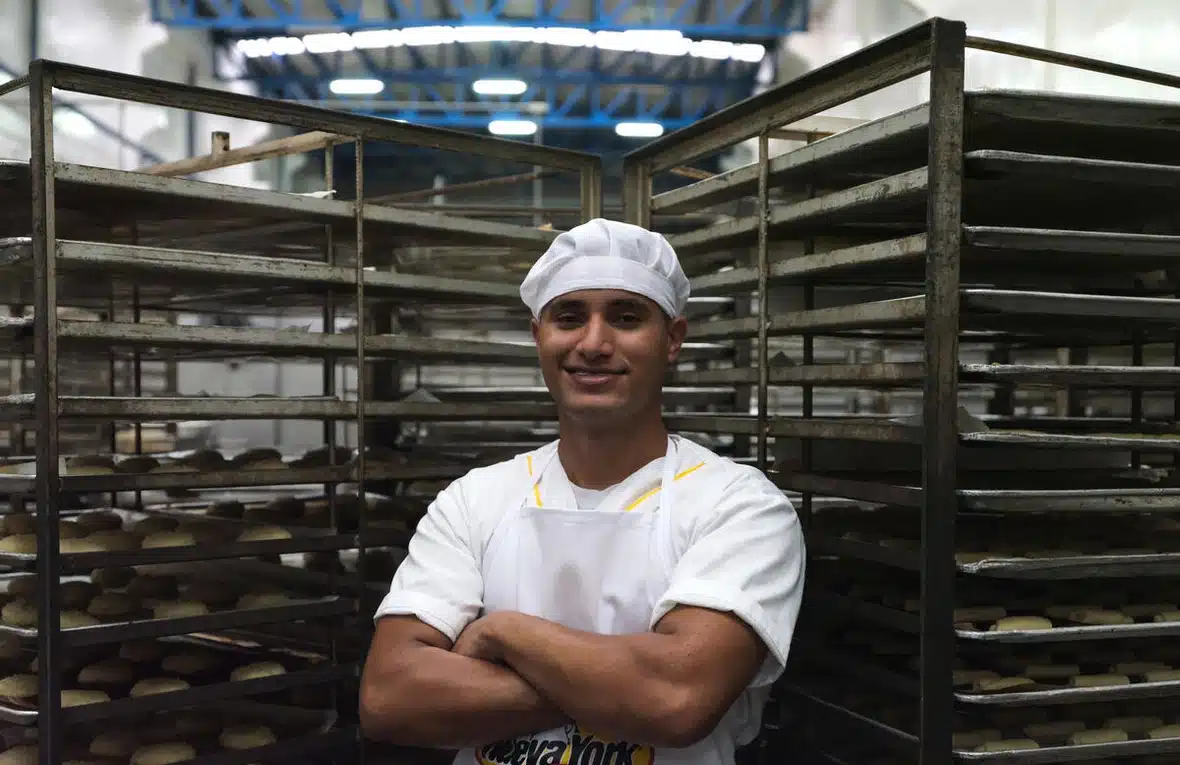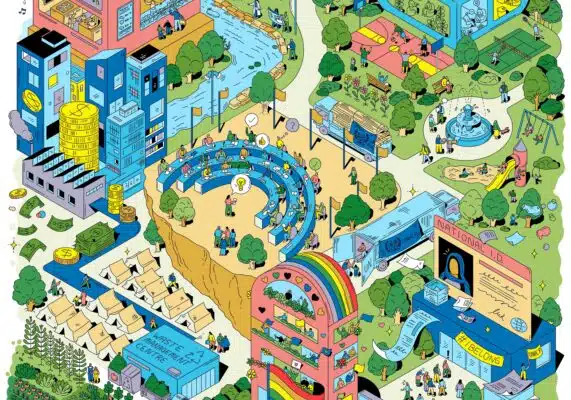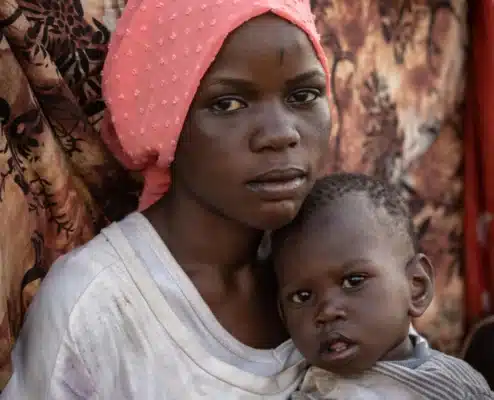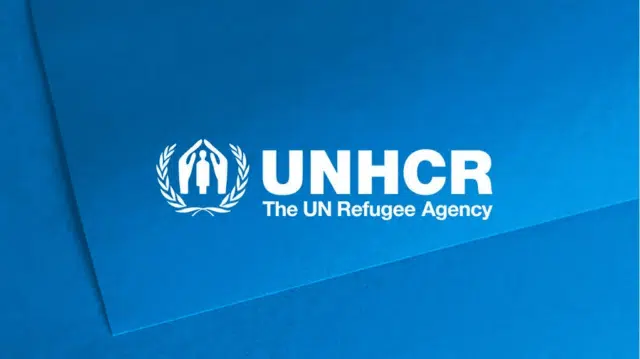
Keyner Suarez, originally from Maracaibo, Venezuela, now works as a baker at the New York Bakery in Barranquilla, Colombia. © UNHCR/Santiago Escobar-Jaramillo
GENEVA – In just over a month, mayors of cities around the world will attend the Global Refugee Forum – the world’s largest international gathering on refugee issues – to pledge to deliver economic and social inclusion plans that enable refugees to rebuild their lives and contribute to their new communities.
Over 25 mayors are expected in Geneva from 13 to 15 December 2023 to announce new and renewed support for employment opportunities, housing, infrastructure, climate solutions and health services for refugees in cities and urban areas. These pledges build on the first Global Refugee Forum in 2019, where mayors called for deeper collaboration between city governments, local leaders and the international community.
“Refugee inclusion is local inclusion and cannot be achieved without mayors,” Marvin Rees, mayor of Bristol, UK, said on World Cities Day – 31 October, 2023. “Bristol, like many cities, is a proud City of Sanctuary but we need to have the opportunity to shape the national and international context in which we work. That’s why I co-founded the Mayors Migration Council and pledged to deliver the Global Compact on Refugees at the first Global Refugee Forum in 2019. Now, in 2023, global mayors are ready to deliver new pledges for refugees and call for greater investment in city-led solutions.”
Progress has delivered results. In Colombia, a country hosting 2.9 million refugees and migrants, three cities are driving employment initiatives. In Barranquilla, home to the second biggest carnival in the world, the city has established a Centro de Oportunidades to coordinate services offered by the local government, national government and international organizations targeting migrants, refugees, returnees and internally displaced people. Through this service, Keyner Suarez, displaced from Venezuela, found work with an industrial bakery. The company advocates for refugee employment, emphasizing how they can contribute to the business and local economy. Colombia’s Ministry of Finance’s medium-term fiscal plan estimates that income from tax receipts will increase by 2.9 per cent of GDP by 2030 from 2021, compared to a baseline scenario without migration.
In Nairobi, refugees, migrants and internally displaced people are at the centre of the city’s green transition, creating employment opportunities for economic and environmental sustainability. To plan and mitigate against climate impacts, the city is conducting a baseline study to understand the skills and employment needs of those living in informal settlements in Nairobi. The government is also establishing an innovation centre to benefit the local community and refugees with a commitment to improving public spaces, including legal areas for vendors to provide them with improved livelihood opportunities.
“Cities are the beating heart of business and commerce around the world, and for many refugees, they are the first place they seek safety and the opportunity to rebuild their lives,” said UNHCR’s Deputy High Commissioner, Kelly T. Clements. “When local governments create the right conditions for economic and social inclusion, cities flourish. The commitments of mayors and governors around the world to deliver on these actions embodies the spirit of the Global Refugee Forum, where we hope more cities will join this global effort.”
In Montréal, Canada, initiatives such as a ‘Newcomer office’ assist those arriving in the city, regardless of their immigration status, supporting employment opportunities that match existing skills and aspirations. Set up in 2016, before the first Global Refugee Forum, the city has since joined a global pledge by cities, and developed the “Montréal Inclusive au Travail” (Montréal Inclusive at Work) initiative to extend into the business community, with 60 CEOs from the business group Montréal Employer Circle creating secure pathways to enhance the capacity of employers to hire, integrate and retain refugee employees.
It is estimated up to 60 per cent of refugees now live in urban areas and cities, so these environments play a pivotal role in the formative experiences and future trajectory of refugees and their families. Alongside city pledges, over 300 cities, including Tokyo, Paris and Kampala, have signed a statement of solidarity to promote inclusion and support for refugees — a modest but important step in supporting refugees worldwide.
Contacts
- In Geneva: Mel Paramasivan: paramasi@unhcr.org, +41 79 526 59 48





